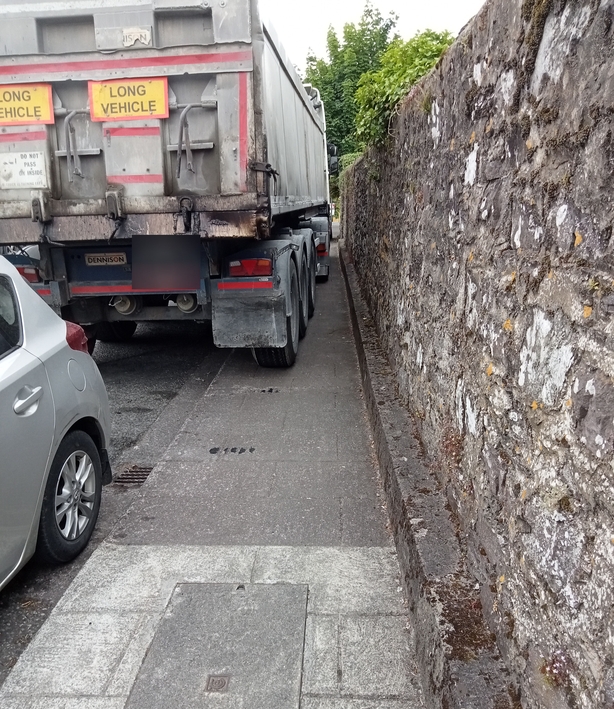People with sight loss have reported injuries because of unexpected obstacles or hazards on footpaths.
Of the 104 respondents to a survey by the National Council for the Blind Ireland (NCBI), 40 said they were injured after walking into or falling over hazards.
The survey found that cars parked on footpaths were the most common obstacles encountered, followed by dog fouling and wheelie bins.
One person told the survey that they sustained a broken ankle because of unexpected street furniture, while another said an object hanging out of a truck hit their face.
Other injuries included a sprained wrist from coming off the footpath to avoid a parked car and a child who had their face scraped by overgrown branches.
Speaking on RTÉ's Morning Ireland, NCBI Access and Mobility Manager Chantelle Smith said coming across unexpected obstacles can have a serious impact on day-to-day life for service users, "in some cases forcing them out onto the road and potentially traffic".
It also impacts the "length of time it takes to complete a journey independently and confidently", she said.
Ms Smith added that the obstacles discussed were temporary and can be prevented.
"It does get better if we all work together," she said.
"These are things that are temporary or unexpected and we have control to move them out of the way.
"Things like leaving the car parked on the footpath for one minute is something that anyone in the community has control over moving."

The NCBI has launched its annual 'Clear Our Paths' campaign.
Its Chief Services Officer Aaron Mullaniff said: "It's unacceptable that children and adults who are blind or vision impaired can be injured in any way because of the dangers of unexpected obstacles on our public walkways.
"The physical impact of a fall or injury in these situations is bad enough, but that is compounded by the finding that nearly 70% of all respondents in this survey are less confident to get out and about independently because they may encounter dangers going about their business."

